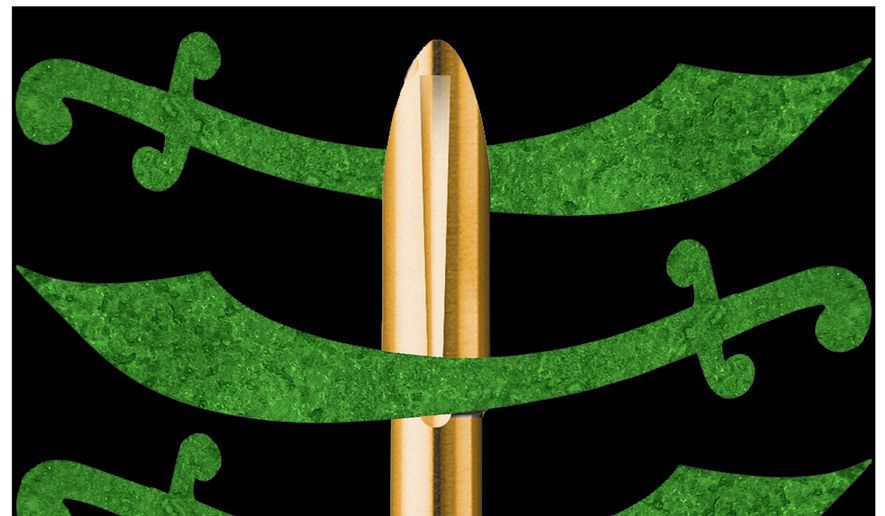OPINION:
In the wake of the brutal murder of journalist Jamal Khashoggi, a Washington Post columnist who was tortured and killed due to his opposition to the Saudi monarchy, dissident journalists and writers from across the Muslim world are living in fear. If Saudi Arabia, a country which recently has been making numerous reforms such as enabling women to drive and curtailing the power of the religious police, can utilize its consulate in order to murder a critic on Turkish soil, then no writer or critic from any Muslim majority nation is safe.
Whether one agrees with the political views promoted by Mr. Khashoggi or not is irrelevant. No one deserves to have their fingers chopped off and to have their body chopped up like an apple. Saudi Arabia getting away with murdering and torturing him merely because his political opinions were not supported by his government, and it represents a clear and present danger to the plight of dissident writers and bloggers everywhere. For as President John F. Kennedy said, “The rights of every man are diminished when one man is threatened.”
Iranian blogger and journalist Neda Amin was greatly influenced by the Khashaggi murder. She fears that she could share Mr. Khashoggi’s fate should she ever enter inside the building of any Iranian consulate in order to renew her expired Iranian passport: “Iran would not kill in the Consulate itself like the Saudis did. However, they would move me to a governmental car and return me to Iran from where they will kill me.” Ms. Amin noted that no local government would dare to check any car belonging to the Iranian Embassy, and for this reason they would be able to get away with such a crime. Furthermore, by moving her back to Iran and killing her there, she implied that the Iranians would be able to avoid the international scandal that the Saudis are presently experiencing.
Bangladeshi blogger Sazzadul Hoque, a prominent proponent of LGBT rights, women’s rights and human rights who is a Muslim apostate, is living in fear in the wake of the Khashoggi murder for he is afraid that he could also be targeted. In Bangladesh, his entire family disowned him and he was expelled from university merely because of his political views. Like Mr. Khashoggi, the ruling government did not support his views and various Islamist groups in Bangladesh are threatening to murder him. He was forced to flee Bangladesh because of this.
“Yes, it is true that there is no Blasphemy Law in Bangladesh,” Mr. Hoque noted. “But, the ICT act (Information and Technology Act) which has turned into Digital Security Act is just a de facto [representation] of blasphemy law. Bloggers, journalists, writers, online activists, human rights activists and LGBT activists have been under the microscope of the government and threats from Islamic fundamentalists for online materials that may have been perceived by some to have hurt their religious beliefs. As a result, peoples’ freedom of thought and expression is being violated. The conscious people of Bangladesh are being restricted from speaking the truth.”
While Ms. Amin has an Israeli visa that can be renewed every three months, Mr. Hoque does not even have that. He only has permission to remain in India for another two months unless a miracle occurs: “I am homeless for my writing, activism and for speaking for free thinkers. My life is in danger for speaking about humanism, secularism and LBGT rights. I have been living an inhumane life since May 2017.” Following the Khashoggi murder, Mr. Hoque is scared that Bangladeshi Islamists can hunt him down in India just as Mr. Khashoggi was murdered while in Turkey.
Nevertheless, it is important to remember that Jamal Khashoggi was not a Western-style liberal. According to John R. Bradley, author of “Saudi Arabia Exposed: A Kingdom in Crisis,” Mr. Khashoggi was a supporter of the utilizing democracy in order to help the Muslim Brotherhood gain power across the Middle East. This is why the Saudis wanted him eliminated for they consider the Muslim Brotherhood to be one of their main enemies. However, the brutal murder of any critic of any non-democratic state spreads fear among dissidents everywhere that they could also be killed. It has a domino effect especially since Saudi Arabia is not a country that limits its repression to those who write in support of radical Islam, as the fate of Saudi dissident blogger Raif Badawi and Saudi women’s rights activist Loujain Al Houthlal demonstrates.
Given this, the horrific murder of Mr. Khashoggi is another sign that the repression of critics is alive and well in Saudi Arabia. Even though the present Saudi Arabian leadership is an ally in America’s and Israel’s struggle against the Iranian regime, they are still not a free country that respects human rights. Therefore, the murder of Mr. Khashoggi serves as a wake-up call for all of those who care about supporting journalists and dissidents in the wider Muslim world. We in the West must stand in solidarity with all dissidents from Muslim majority countries.
• Rachel Avraham is the president of the Dona Gracia Mendes Nasi Center for Human Rights in Middle East and a fellow at the Haym Salomon Center.




Please read our comment policy before commenting.